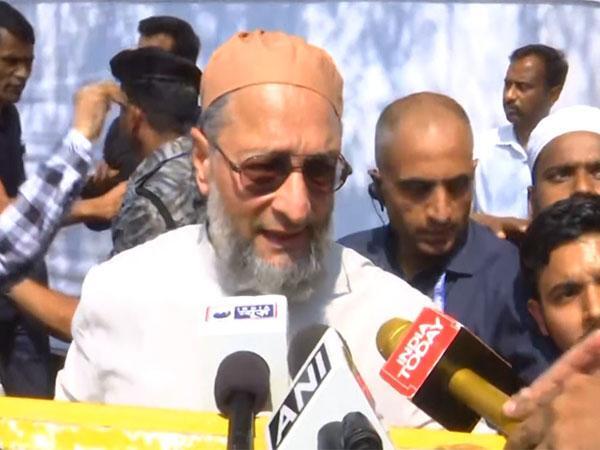
Waqf Bill is for snatching Muslims’ graveyards, dargahs: Owaisi
Recently, All India Majlis-e-Ittehadul Muslimeen (AIMIM) chief Asaduddin Owaisi joined the All India Muslim Personal Law Board’s (AIMPLB) protest against the Waqf (Amendment) Bill in Delhi. The bill, which aims to reform the Waqf Act, 1995, has been met with widespread criticism from the Muslim community, with many labeling it as an attempt to appropriate their religious and cultural heritage. Owaisi, a vocal critic of the bill, termed it “unconstitutional” and claimed that it is not meant to protect Waqf properties, but rather to seize control of graveyards, khanqahs, and dargahs from Muslims.
The Waqf (Amendment) Bill seeks to amend the Waqf Act, 1995, which was enacted to protect and manage Waqf properties, including mosques, dargahs, and other religious institutions. However, critics of the bill argue that it will allow the government to take control of these properties and use them for other purposes. The bill has been met with fierce opposition from the Muslim community, with many fearing that it will lead to the erosion of their religious and cultural heritage.
Owaisi’s remarks echoed the concerns of many Muslim leaders and scholars, who have expressed alarm at the potential consequences of the bill. “This Bill is not for saving Waqf property, not for removing encroachers, but for ending Waqf property, for snatching away graveyards, khanqahs, and dargahs from Muslims,” Owaisi said.
The AIMIM chief’s criticism of the bill is not new. In the past, Owaisi has been a vocal critic of attempts to appropriate Muslim religious and cultural heritage. He has consistently argued that the government has a history of disregarding the rights of Muslims and has attempted to impose its own values and beliefs on the community.
Owaisi’s criticism of the Waqf (Amendment) Bill is based on the fact that it seeks to give the government the power to take control of Waqf properties. Under the bill, the government will have the authority to appoint administrators to manage Waqf properties, which critics argue will lead to the erosion of Muslim control over these institutions. The bill also seeks to establish a Waqf Development Council, which will be responsible for developing and managing Waqf properties. Critics of the bill argue that this council will be dominated by non-Muslims, who will use their influence to shape the development of Waqf properties in a way that is not in the best interests of the Muslim community.
The AIMIM chief’s criticism of the bill has been echoed by many other Muslim leaders and scholars. The All India Muslim Personal Law Board (AIMPLB), which is the largest Islamic organization in India, has also come out against the bill. The AIMPLB has argued that the bill is an attempt to appropriate Muslim religious and cultural heritage and has called on the government to scrap the bill.
The controversy surrounding the Waqf (Amendment) Bill is not new. The bill has been in the works for several years, and has been met with opposition from the Muslim community from the very beginning. However, the recent protests and criticism from Muslim leaders and scholars have brought the issue to the forefront of national attention.
The controversy surrounding the Waqf (Amendment) Bill highlights the ongoing struggle of the Muslim community in India to protect their religious and cultural heritage. The bill is just one example of the many attempts by the government to appropriate Muslim religious and cultural heritage. In recent years, there have been numerous attempts to destroy or desecrate Muslim religious institutions, including mosques and dargahs.
The controversy surrounding the Waqf (Amendment) Bill also highlights the need for greater awareness and understanding of the Muslim community’s concerns and issues. The bill is not just a matter of procedural or bureaucratic significance, but rather a matter of great importance to the Muslim community. The bill has the potential to erode the rights and autonomy of Muslims and to appropriate their religious and cultural heritage.
In conclusion, the Waqf (Amendment) Bill is a highly controversial piece of legislation that has been met with widespread opposition from the Muslim community. AIMIM chief Asaduddin Owaisi has been a vocal critic of the bill, terming it “unconstitutional” and claiming that it is not meant to protect Waqf properties, but rather to seize control of graveyards, khanqahs, and dargahs from Muslims. The controversy surrounding the bill highlights the ongoing struggle of the Muslim community in India to protect their religious and cultural heritage and the need for greater awareness and understanding of their concerns and issues.






